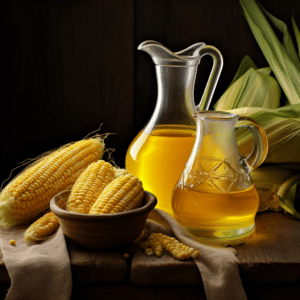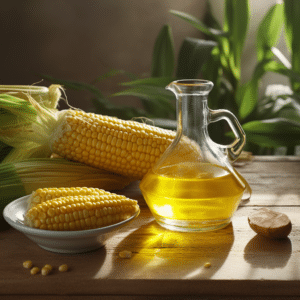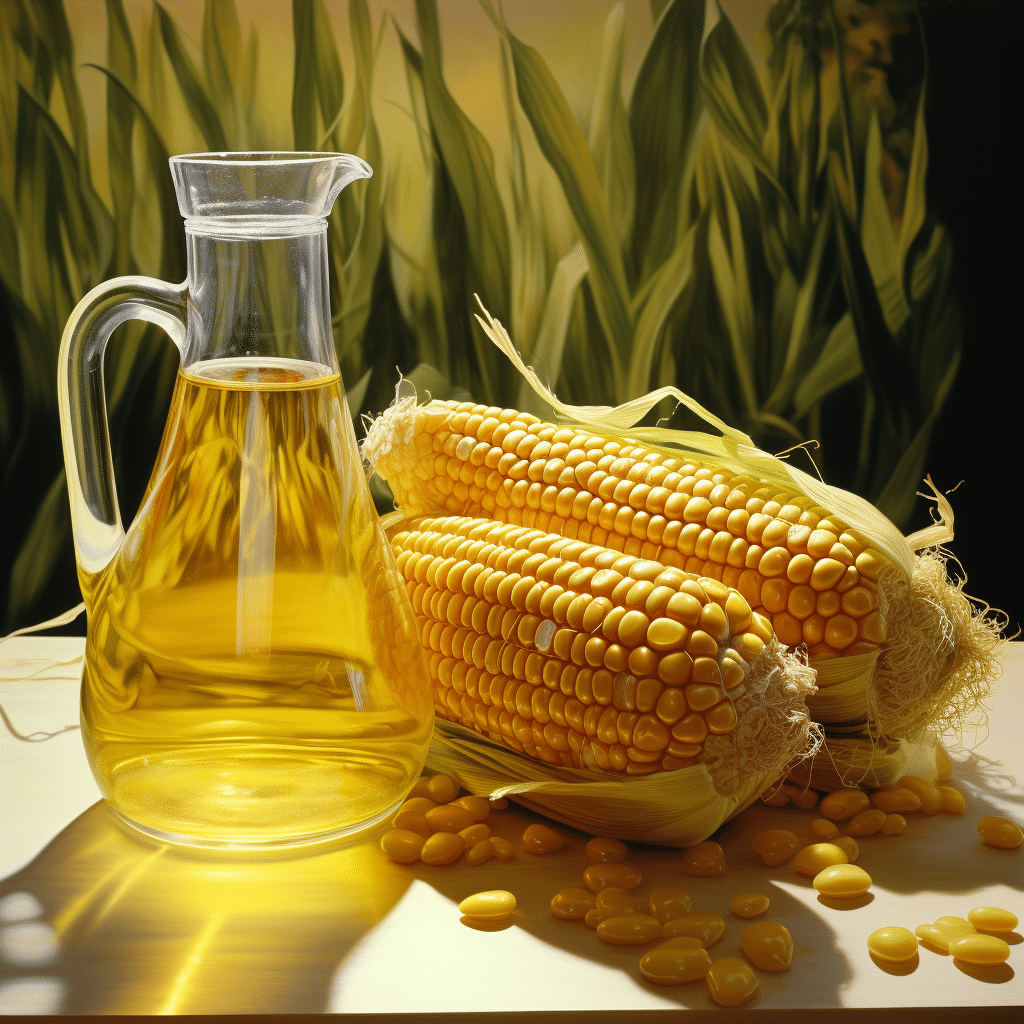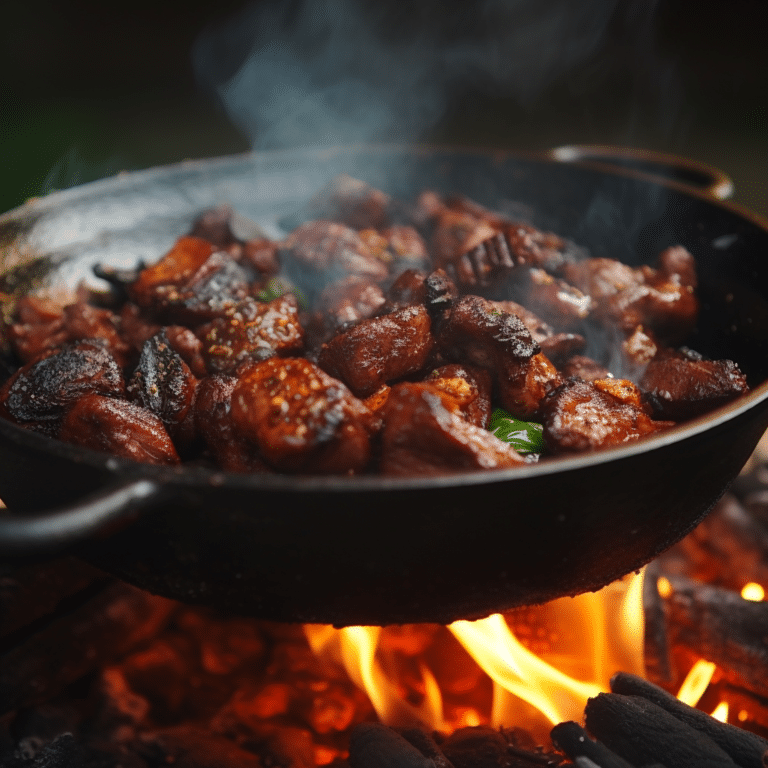Is Corn Oil Saturated or Unsaturated? Exploring Fatty Acids
Cooking oils serve an excellent purpose for culinary and health purposes. They improve the taste and texture of food, making it mouth-watering and explicit. Moreover, cooking oil provides extra calories, insulation against cold, and acts as a medium for transporting fat soluble vitamins. But, despite all these benefits, have you ever thought of what makes up oil?
Cooking oils are primarily made up of components from three fatty acid molecules and one glycerol molecule. These fatty acids are either saturated, monounsaturated, or polyunsaturated fatty acids.
Some oil types may contain tocopherols, antioxidants, and phytosterol on top of fatty acids and glycerol. And this is what determines whether a particular oil is saturated or unsaturated. So, is corn oil saturated or unsaturated? Stay locked to know whether corn oil is saturated and other aspects concerning it.

Is Corn Oil Saturated Or Unsaturated?
Corn oil is a combination of different types of fatty acids. It consists of both saturated and unsaturated fats. Most fatty acids in this oil type are polyunsaturated, while the smaller percentage comprises monounsaturated fatty acids. For this reason, corn oil can be either saturated or unsaturated, as it contains both saturated and unsaturated fatty acids.
About Corn Oil
Corn oil comes from corn germ – the part that germinates and grows into more corn. This oil is considered refined as it undergoes complicated and lengthy processes before it’s ready for consumer sale. The refining process involves removing fat from corn kernels using pressing, deodorization, hexane extraction, and winterization methods. These methods improve the smell, taste, and appearance of corn oil.
The most common type of corn oil available in the market is the one with a neutral taste and a high smoke point. The high smoke point makes this oil ideal for frying foods at high temperatures and moistening packaged foods. It can also be used for baking, grilling, or stir fries and sauces.
As mentioned, corn oil contains both saturated and unsaturated fatty acids.
Some of the primary fatty acids found in corn oil include:
Linoleic acid – linoleic acid is a polyunsaturated fatty acid and makes up a large percentage of fatty acids in corn oil. Being a polyunsaturated fatty acid means there is more than one double bond in the structure of this fatty acid. Linoleic acid is also an omega-six fatty acid, an essential fatty acid alongside omega-3 fatty acids.
Oleic acid – being a monounsaturated fatty acid, the oleic fatty acid has only one double bond in its structure. The double bond is on the ninth carbon atom, making this fatty acid belonging to the omega-9 fatty acid molecules.
Palmitic acid – palmitic acid is a saturated fatty acid. This means all the spaces on carbon atoms in this fatty acid are bonded, making it saturated. Unlike omega 3 and 6 fatty acids, palmitic acid is a non-essential fatty, and the body can synthesize it.
Other types of fatty acids found in low quantities in corn oil include alpha linoleic acid, stearic acid, and negligible amounts of other fatty acids.
Is Corn Oil The Same As Vegetable Oil
Corn and vegetable oil are different and don’t mean the same thing. Corn oil is a type of vegetable oil, while vegetable oil is a combination of many different plant oils. Some of the oils used to make vegetable oil may include:
- Olive oil
- Peanut oil
- Corn oil
- Canola oil
- Safflower oil
- Sesame oil
- Avocado oil
- Sunflower oil
- Grapeseed oil
- Coconut oil
When shopping and you come across vegetable oil, just know it’s a blend of different oils, including corn, soybean, and canola oil. Some of these oils are healthier than others. That’s mainly due to the chemical compositions and how quickly they can become rancid when heated.
Lastly, corn oil can be hydrogenated to make margarine. Hydrogenation involves adding hydrogen elements to the double bonds, saturating the fatty acid molecules. This is the main reason why margarine is considered unhealthy.
Corn Oil Nutrition Information
Oils don’t contain carbohydrates, sugars, or proteins. All oils contain almost nothing other than fat. And since fat has the same amount of calories per gram, they provide the same amounts of calories.
Corn oil is majorly fat. However, it provides other nutrients in small amounts. They include small amounts of fiber, vitamin C, and significant amounts of polyunsaturated and monounsaturated fatty acids. Although corn oil offers some antioxidants and vitamins like vitamin E, they are mainly used as a source of fat.
According to the United States Department of Agriculture, one tablespoon of corn contains the following:
- 122 calories.
- 14 grams fat (this is about 2 grams saturated fats).
- 2 milligrams of vitamin E (this provides about 13% daily value).
Health Benefits Of Corn Oil
Monounsaturated and polyunsaturated fats
Even though corn oil has both monounsaturated and polyunsaturated fats, it has more polyunsaturated fats than monounsaturated fats. The polyunsaturated fat linoleic acid makes up 30–60% of this oil.
Linoleic acid offers numerous health benefits when eaten in small amounts. According to research, linoleic acid can help reduce inflammation and keep cholesterol in check. The platelet aggregation effect makes linoleic acid a crucial factor in reducing blood clot formation and insulin resistance risks.
Vitamin E
Vitamin E is an essential vitamin needed for supporting eye health, immune function, and cardiovascular function, among other body processes.
High Smoke Point
With a smoke point of 450 degrees Fahrenheit, corn oil is an excellent option for cooking at high temperatures. The high smoke point means you can deep fry foods with corn oil without the oil burning or negatively changing its chemical structure.
Offers Phytosterols
Corn oil comes from plants and may help lower LDL levels. It does this by stopping the bad cholesterol from getting into the body. Research shows that getting more phytosterols may also lower the chance of getting heart diseases.

Conclusion
Corn oil is a vegetable oil containing both saturated and unsaturated fatty acids. This oil has a higher smoke point, making it ideal for various cooking methods like baking and deep frying. It also has other health benefits like providing vitamin E, phytosterols, and antioxidants which can positively impact your health.






